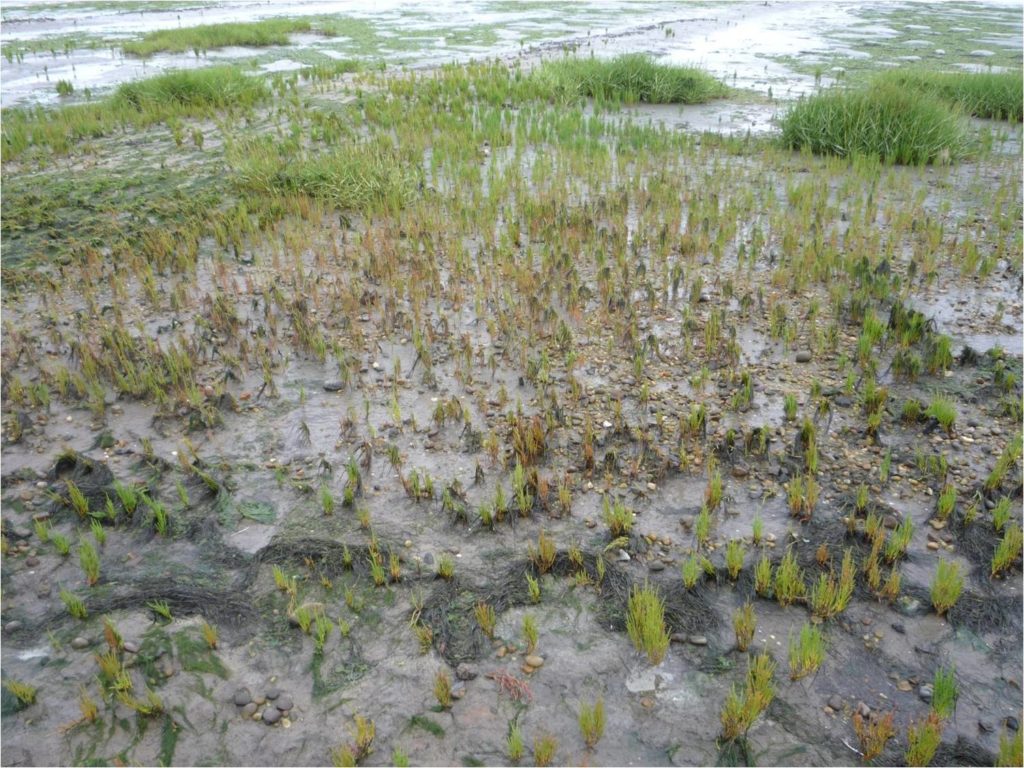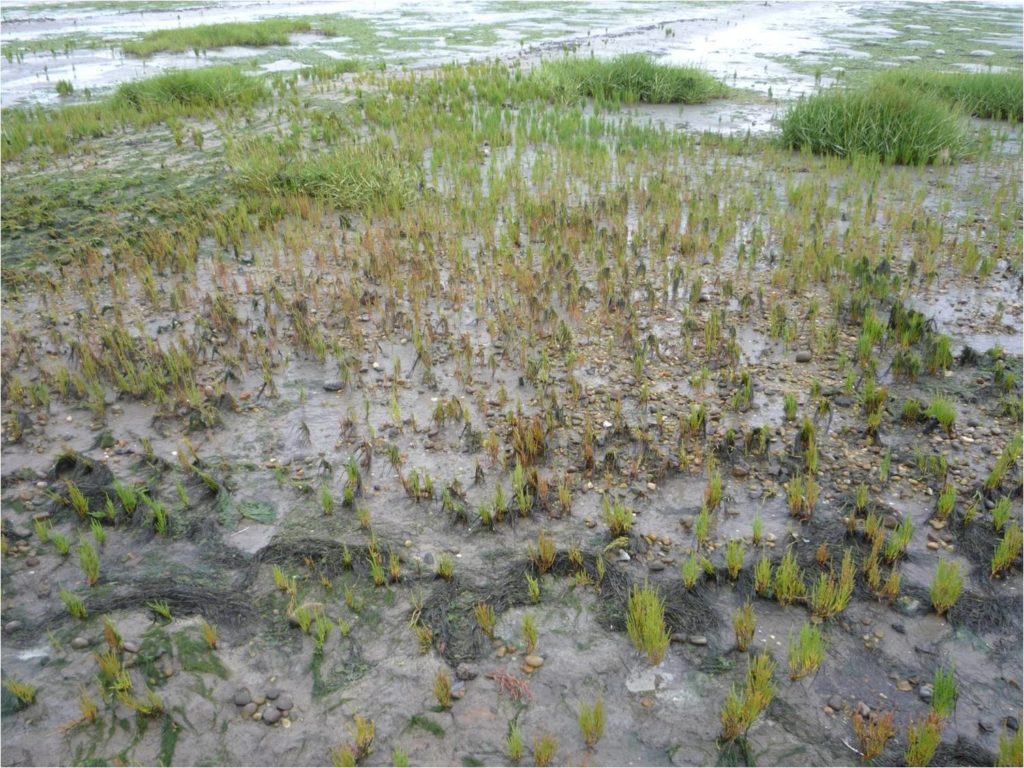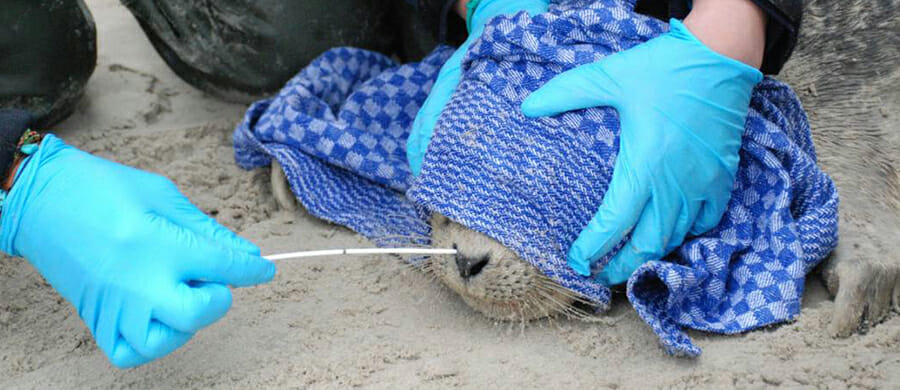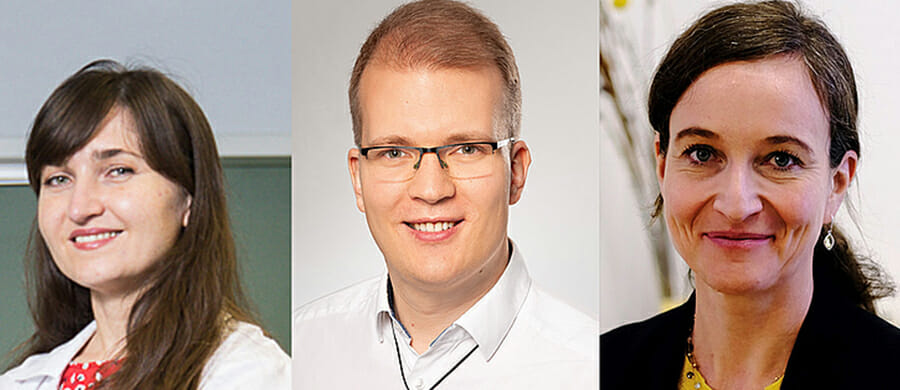
DATA & FACTS
Project
2019-2023
Scientific contact
Prof. Dr. Jutta Papenbrock
EU-Funding line
Horizon 2020
Projektleitung: Prof. Dr.-Ing. Arno Kwade
Projektname: „Li-Ion Pilot Lines Network“ (LiPLANET)
Keywords: Energie, Mobilität, Partner
Aquacombine – Using salt-tolerant plants to counter the consequences of climate change
EU project Aquacombine focuses on the potential of halophytes with the participation of Leibniz University Hannover.
Gourmets relish the tips of the plants, which taste like the ocean. But until now glasswort – also known as sea asparagus – has eked out more of a niche existence. To date the plant, which grows in salt marshes and mudflats, has not been used for large-scale industrial food production. This is despite the fact that plants like glasswort (Salicornia europaea) have many useful qualities. This is the conclusion reached by the Europe-wide research project Aquacombine, as part of which scientists spent more than four years studying the potential of halophytes, which are primarily salt-tolerant plants. For example, glasswort is not only a source of food but also contains valuable polyphenols, can be used as a filter in saline water and also contributes significantly to coastal protection through its root system.
The European Union provided 12 million euros in project funding through the Horizon 2020 programme. Under the leadership of Prof. Dr. Jutta Papenbrock, the Institute of Botany at Leibniz University Hannover (LUH) took part as one of the 17 project partners. Aalborg University in Denmark was responsible for heading the project as a whole. The goal was to determine whether and to what extent the plant’s characteristics can be utilised to counter the impacts of climate change and whether it is possible to establish a production chain with a higher level of value creation.
The scientists at LUH were initially interested in the plants’ potential for cultivation. The benefits relative to non-salt-tolerant plants are clear: Halophytes do not need freshwater and grow on coasts and in salt marshes – that is, in locations where other plants do not thrive. They also require a small amount of space. Experiments at the LUH Institute of Botany with a specially constructed pilot facility showed that it is also possible to cultivate them in a greenhouse with artificial light and that the yield can be increased significantly under favourable conditions, such as an optimal salt concentration in the nutrient solution. This would be important in the long term for the large-scale production of glasswort. Additionally, Salicornia in particular is not only tasty but also healthy: the plant is rich in polyphenols, which have antioxidant and anti-inflammatory properties.
However, halophytes are capable of even more. At the Institute of Botany, Andre Fussy, a doctoral candidate in Prof. Dr. Papenbrock’s team, examined glasswort’s unusual salt tolerance more closely using molecular biology techniques. As is often the case, the answer lies in the plant’s genes. On the one hand, they could make it possible to alter other plants such as tomatoes in future so that they could cope better with salty soil. On the other, the investigations at the molecular level could contribute to more quickly establishing glasswort as a crop.
Alongside these topics, other partners in the Aquacombine project studied whether it would be possible to couple the irrigation system with fish farming, because the plants could then filter and reuse the nutrients from the aquaculture. Phytoremediation – which means the potential use of the plants to regenerate saline soils – was another topic covered by the project. Overall, Aquacombine has contributed to making new, stress-tolerant plants usable in accordance with the principles of bioeconomics.

© Jutta Papenbrock
Date:
22.03.2024


